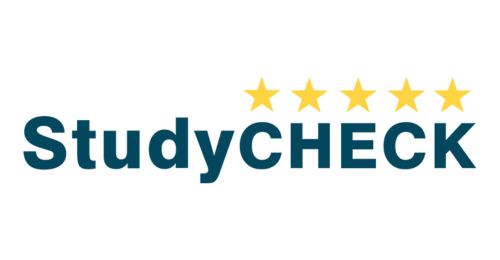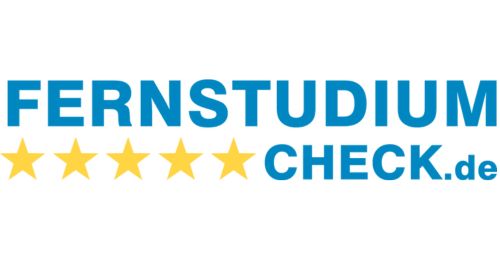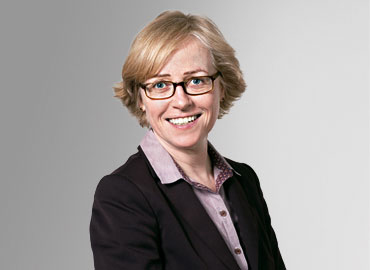This Website uses cookies to improve your visit on our website. More Info
Study Finder
- MBS QUICK FACTS:
- Nationally recognized since 1999
- February & September
- 6 Semester + Bachelor Thesis
- German/English
- Book a consultation
Anyone interested in studying business today has a wide choice of specialised and practice-oriented degree programmes - including at private universities. Three interesting programmes are offered by Munich Business School, IST University of Applied Sciences for Management and BSP Business and Law School Berlin. These Bachelor's degree programmes are briefly presented below to give you an initial overview.
The International Business degree programme prepares you specifically for an international career. You study in English, learn other foreign languages and spend at least one semester abroad. Practical projects, company collaborations and soft skills training are an integral part of the curriculum.
The Business Administration Bachelor's programme is designed as a distance learning course and is particularly suitable for working professionals or dual students. It offers you flexibility combined with a solid business education. Elective modules allow you to set individual specialisations, for example in sports, media or health management.
The Business Administration degree programme at the BSP focuses not only on traditional business administration content but also on personal development. You will learn about economic interrelationships and be prepared for management tasks. Smaller study groups encourage dialogue.
The following special features play a role in one or more of the business degree programmes at Munich Business School, IST-Hochschule für Management and Business & Law School Berlin. They provide insights into the content, structures and special features of the degree programmes and illustrate how these degree programmes promote practice-oriented learning, individual design options and experiences.
In the following, we briefly explain what is behind the concepts and terms used in business studies.
Focus areas are thematic specializations that you can choose within your study program to specialize in specific areas such as marketing, finance, or entrepreneurship. In some programs, you can even choose more than one focus area.
Elective courses give you the opportunity to choose from various modules to suit your interests and career goals, allowing you to tailor your studies to your individual needs. In many degree programs, you can choose more than one elective course.
A study program with an international focus prepares you for the challenges and opportunities of global markets through intercultural content, languages, and often international experiences such as semesters abroad.
A business, start-up or similar project is a practice-oriented project in which you work in teams to analyse real business problems and develop innovative solutions, often in collaboration with a partner company.
Case studies are practical analyses of real or fictional business situations in which you are required to solve specific problems and make strategic decisions – ideal for applying theory directly.
A simulation game is a simulated business or project situation in which you make business decisions as part of a team. It combines theory with practice and promotes strategic thinking and teamwork.
A stay abroad during your studies allows you to study at a partner university abroad for a certain period of time, participate in a project abroad, or gain international practical experience in order to strengthen your intercultural skills.
An internship is a practical experience in a company where you apply your theoretical knowledge, gain professional insights and make valuable contacts.
This is an additional service that helps students learn or improve their language skills in order to prepare for an international or possible German career.
A mentoring program connects you with experienced experts or alumni who can provide valuable advice, career tips, and personal support.
The recognition and accreditation of the three universities are an important indicator of the quality and content of their degree programmes. Institutions such as the Federal Ministry of Education and Research, FIBAA, the German Council of Science and Humanities and renowned international accreditation organisations such as AMBA, AACSB and EQUIS examine academic excellence, practical orientation and international standards. Below we provide an overview of the most important accreditations for the three Bachelor in Business degree programmes.
| MBS | IST | BSP | |
|---|---|---|---|
| German Ministry of Education | ✔️ | ✔️ | ✔️ |
| FIBAA | ✔️ | ✔️ | ❌ |
| German Council of Science and Humanities | ✔️ | ✔️ | ✔️ |
| AMBA | ❌ | ❌ | ❌ |
| AACSB | ✔️ | ❌ | ❌ |
| EQUIS | ❌ | ❌ | ❌ |

Internationality plays a different role at the three universities:
At Munich Business School, it is a central component of the study concept. Teaching is predominantly in English, there are some compulsory semesters abroad and you can learn at least one other foreign language if you wish - the entire programme is clearly geared towards international careers.
The IST University of Applied Sciences for Management places less emphasis on internationality. As it is a distance learning programme, flexibility is paramount; international content is part of the curriculum, but stays abroad are optional and not an integral part.
Internationality is present at the BSP Business and Law School Berlin, but is not a priority. There is cooperation with foreign universities and the opportunity to spend semesters abroad, but the course of study is more focussed on the German-speaking economic area.
In the following table, we have summarised the most important facts about the various business degree programmes at the three universities MBS, IST and BSP.
| Munich Business School | IST-Hochschule für Management | Business & Law School Berlin | |
|---|---|---|---|
| Degree program | Bachelor International Business | Bachelor Business Administration | Bachelor Betriebswirtschaftslehre |
| Degree | Bachelor of Arts | Bachelor of Arts | Bachelor of Science |
| Duration | 6 semesters + BA thesis | 6-8 semesters | 6 semesters |
| Study language | German & English (Bilingual or English track only) | German | German |
| Study start | winter & summer semester | winter & summer semester | winter & summer semester |
| Location | Munich | Exams in: Düsseldorf, Essen, Frankfurt am Main, Hamburg, Hanover, Berlin, Munich, Jena, Weil am Rhein and in the Stuttgart area, Innsbruck (Austria), Online | Berlin, Hamburg |
| Format | full-time study | distance learning: full-time or part-time study, also possible on a dual basis | full-time study |
| Numerus Clausus | No NC | No NC | Not specified |
| Recognition | State-recognized & accredited | State-recognized & accredited | State-recognized & accredited |
| Study requirements | 3 ways: No. 1: School-leaving certificate entitling the holder to study at a university in Bavaria, No. 2: Vocational training in Germany + master craftsman's certificate or technical college (general university entrance qualification), No. 3: At least two years of (commercial) vocational training successfully completed in Germany followed by at least three years of full-time employment in this profession, proof of English language proficiency in a test | University or technical college entrance qualification (also possible without if: master craftsman's certificate or advanced training or completed vocational training of at least 2 years and at least three years of professional experience), 3-month commercial internship or professional experience, English language skills at B2 level (only for the “International Management” elective module) | eligibility to study (e.g. the german Abi), German language skills at C1 level |
| Scholarship opportunities? | Yes, 10% to 50% discount on semesters 1 and 2 | Yes, various options | No |
| Thesis | Bachelor thesis in German or English | Bachelor thesis | Bachelor thesis |
| Special features | Choice of focus + electives, international focus, mentoring program, language courses, semester abroad, internships, pre-bachelor possible, start-up project, case studies | High flexibility, study focus, elective module or internship or a semester abroad, business game | Individual specialization, practical projects & case studies, 20 weeks in a company, business English course, business games |
Do you want to find out what the difference is between a Bachelor of Arts and a Bachelor of Science?
For more information on this topic, please visit our dedicated page.
Difference between a B.A. and a B.Sc.The location that is best suited for the Business Bachelor depends on your personal preferences and goals. The choice should be made based on budget, industry and lifestyle. Here you will find a brief overview of the three locations Munich (MBS & IST), Jena (IST) and Berlin (BSP) for a Business Bachelor:
| Munich | Jena | Berlin | |
|---|---|---|---|
| Economy | 10/10 | 4/10 | 6/10 |
| Internationality | 9/10 | 5/10 | 10/10 |
| Networking Opportunities | 10/10 | 3/10 | 9/10 |
| Infrastructure | 9/10 | 6/10 | 8/10 |
| Quality of Life | 9/10 | 7/10 | 6/10 |
| Cost of Living | 2/10 | 7/10 | 3/10 |
| Student Life | 8/10 | 5/10 | 9/10 |
| Nature | 10/10 | 8/10 | 7/10 |
| Recreational Possibilities | 10/10 | 6/10 | 10/10 |
| Culture | 9/10 | 7/10 | 8/10 |
| 86/100 | 58/100 | 78/100 |

All three degree programmes offer good entry opportunities in business, albeit with different specialisations:
After completing the Bachelor International Business programme at Munich Business School, you will have excellent opportunities in the international business and management environment. Many graduates work in globally active companies, international organisations or abroad, often in areas such as business development, consulting or finance.
The IST University of Applied Sciences for Management prepares you in a practical way for business tasks in various industries - especially where business know-how with industry specialisation is required, for example in tourism or healthcare. Thanks to the link to practice, many students join the company they worked for during their studies.
The BSP Business and Law School Berlin's business administration degree programme provides you with an economic foundation that opens up a range of career options - from medium-sized companies to corporations. Areas such as corporate management, marketing, project management or strategic consulting are close at hand.
The experiences of alumni are a decisive factor in choosing the right business degree programme. Reviews on platforms such as StudyCheck or FernstudiumCheck provide authentic insights into the quality of the degree programme, support and career opportunities from the perspective of former students. In the following, we compare the ratings of the three Bachelor of Business degree programmes at MBS, IST and BSP to provide a solid basis for a decision.


These ratings are current as of June 2, 2025 and are from the German rating portals StudyCHECK.de and FernstudiumCHECK.de.
★★★★☆ 4,3
99% would recommend
★★★★☆ 4,2
97% would recommend
★★★★☆ 4,4
98% would recommend
★★★★☆ 4,5
98% would recommend
★★★★☆ 4,2
94% would recommend
★★★★☆ 4,3
100% would recommend
Munich is one of the economically strongest cities in Germany and is home to numerous large companies such as BMW, Siemens and Allianz. The network for internships, part-time jobs and later career opportunities is excellent. The city offers a high quality of life and an international atmosphere.
Challenges:
The cost of living - especially rent - is by far the highest in Munich. The housing market is also very tight.
Jena is a dynamic, young university city with a strong focus on innovation, science and technology. The cost of living is comparatively low and student life is active and well connected.
Challenges:
Economic diversity is more limited than in large cities and there are fewer large local companies. International career opportunities directly from the city tend to be limited.
Berlin offers a range of companies - from start-ups to some international corporations - as well as job opportunities during and after your studies. The city's cultural offerings, internationality and openness attract many young people.
Challenges:
Competition on the labour market is high and the housing market can also be difficult. Sometimes it is challenging to concentrate or find structure in the hustle and bustle of the big city.
Studying Business is doable, but it can be quite challenging - especially if you are not entirely comfortable with maths, analytical thinking and complex interrelationships. However, with an interest in the subject, good organisation and a little perseverance, it's easy to manage.
Economics is the overarching field that encompasses both economics and business administration. While in business administration you deal with individual companies and their decisions, economics often also deals with macroeconomic relationships.
When studying economics, you will learn both business administration and economics, i.e. corporate management and macroeconomic contexts, whereas a business administration degree programme focuses more on companies, management and economic decisions in companies.
A BA in Economics and Business Administration is a bachelor's degree with which you acquire basic knowledge in business administration and, in some cases, economics - in other words, everything to do with companies, markets, finance and economic relationships.

